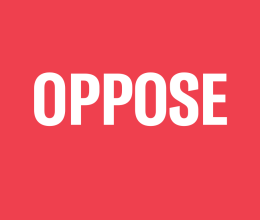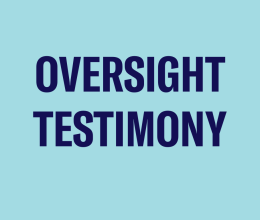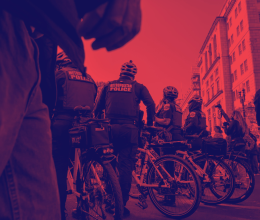
For Immediate Release: September 21, 2016
Contact: Monica Hopkins-Maxwell, 202.601.4263 or cell 202.288.5229, [email protected], Gabriela Melendez, 202.906.9605, [email protected]
DC Joins Nationwide Community Control Over Police Surveillance Effort
Efforts Aim to Introduce Transparency and Accountability, And Maximize Community Influence Over Decisions Regarding the Purchase and Use of Police Surveillance Tools
The American Civil Liberties Union and local officials in DC announced today that they are launching efforts to bring greater transparency to the acquisition and use of local police surveillance technologies. The local work will be framed by a set of guiding principles released by a diverse coalition of 17 national organizations today, with the goal of maximizing community input into surveillance technology decisions.
At-Large Councilmember David Grosso has vowed to work with local residents and organizations and his colleagues to explore legislation for the next Council session.
“DC residents deserve to know what technology police are using to surveille their communities – and what is being done with that data,” said Monica Hopkins, executive director of the ACLU of the Nation’s Capital
“I am pleased to join the ACLU in today’s nationwide focus on law enforcement surveillance,” said Councilmember Grosso. “As a strong advocate for government transparency and civil and human rights, I look forward to working with community members and my colleagues on the Council to identify effective actions we can take in the District of Columbia to further good government and police accountability.”.”
“The use of surveillance by local police has been spreading unchecked across the country without regard for the communities that they purport to serve,” said Anthony D. Romero, executive director of the American Civil Liberties Union. “Today communities and their local elected officials are taking action to address the disparate impact, financial burden, and threats to civil rights and liberties posed by invasive surveillance technologies.”
The first wave of cities announcing legislative efforts today are:
- Hattiesburg, Mississippi
- Madison, Wisconsin
- Miami Beach, Florida
- Milwaukee, Wisconsin
- Muskegon, Michigan
- New York, New York
- Palo Alto, California
- Pensacola, Florida
- Richmond, Virginia
- Seattle, Washington
- Washington, D.C.
In the rare cases where local police data has been available to the public — in cities like Baltimore, Maryland; Oakland, California; and Lansing, Michigan — the data has shown a disproportionate use of surveillance technologies in communities of color and low-income areas. The partner organizations have created a set of guiding principles to assist community groups in changing surveillance practices. The principles aim to promote transparency, democratic decision making, and community empowerment with respect to if and how surveillance technologies are funded, acquired, and used.
The guiding principles behind this surge of legislative action, which is expected to be replicated in an increasing number of cities across the nation, are as follows:
- Surveillance technologies should not be funded, acquired, or used without express and specific city council approval.
- Local communities should play a significant and meaningful role in determining if and how surveillance technologies are funded, acquired, or used.
- The process for considering the use of surveillance technologies should be transparent and well-informed.
- The use of surveillance technologies should not be approved generally; approvals, if provided, should be for specific technologies and specific, limited uses.
- Surveillance technologies should not be funded, acquired, or used without addressing their potential impact on civil rights and civil liberties.
- Surveillance technologies should not be funded, acquired, or used without considering their financial impact.
- To verify legal compliance, surveillance technology use and deployment data should be reported publicly on an annual basis.
- DC Council approval should be required for all surveillance technologies and uses; there should be no “grandfathering” for technologies currently in use.
This locally-led, multi-city effort was developed in partnership with 17 highly-diverse national partner organizations:
The American Civil Liberties Union (ACLU)
Bill of Rights Defense Committee/Defending Dissent Foundation
Campaign Zero
Center for Democracy & Technology
Center for Popular Democracy
Council on American–Islamic Relations (CAIR)
Crypto Harlem
Demand Progress
Electronic Frontier Foundation
Fight for the Future
The Leadership Conference on Civil and Human Rights
Million Hoodies Movement for Justice
National Association for the Advancement of Colored People (NAACP)
National Network of Arab American Communities
Restore the Fourth
South Asian Americans Leading Together (SAALT)
Tenth Amendment Center
Additional resources and information can be found here: www.communityCTRL.com


